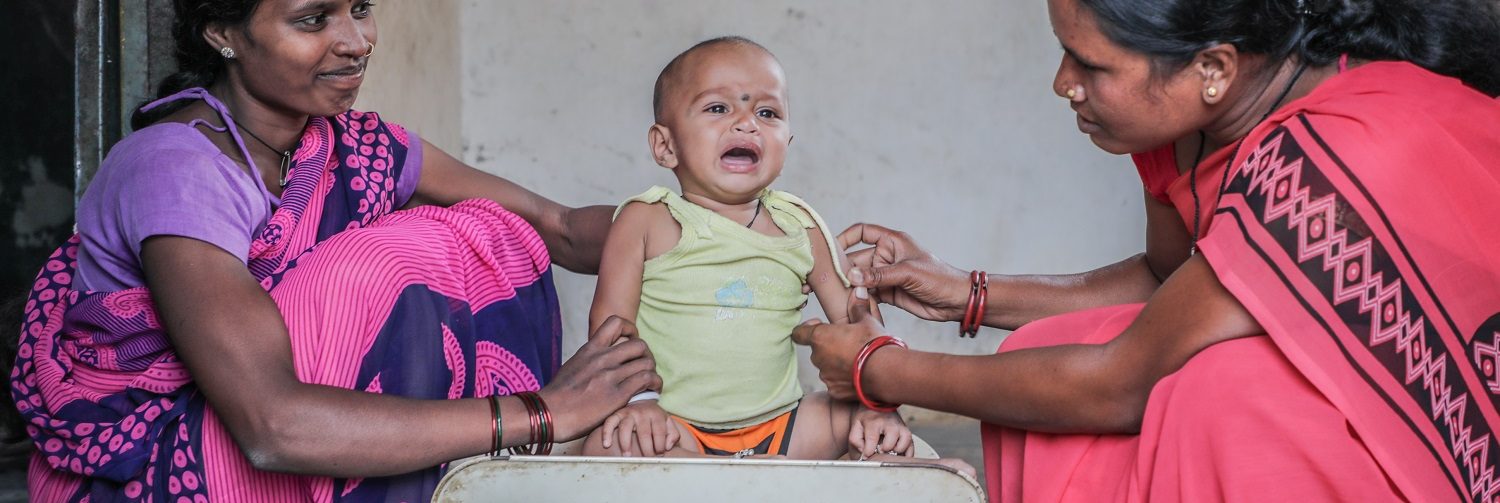
Click HERE to access the Conference Summary Report
At the recently concluded third India-focused implementation research conference “Delivering for Nutrition in India: Insights from Implementation Research” the nutrition community in India closely looked at evidence to inform the implementation of current policy and program initiatives. They also examined the existing research gaps and considered ways of tapping into insights from implementation research to help strengthen the maternal and child nutrition initiatives in India.
Welcoming the key messages and conference recommendations, Sri Ram Mohan Mishra, Secretary, Ministry of Women and Child Development, acknowledged that India’s dynamic journey to find solutions for addressing malnutrition could greatly benefit from these research-based recommendations. Adding to the call for a prioritized implementation research agenda to help strengthen the impact of India’s nutrition mission, or POSHAN Abhiyaan, Ms. Anu Garg, Principal Secretary, Women & Child Development, Odisha, emphasized that policymakers need research findings from nutrition experts to understand the specific questions about program influence and implementation bottlenecks. More than 1800 academics, implementers, development partners, and policymakers from multiple institutes had registered for this first-ever virtual conference on nutrition implementation research.
Through an open call, abstracts were invited on research studies and implementation experiences focused on various aspects of POSHAN Abhiyaan and other platforms supporting actions for nutrition. A total of 51 abstract-based oral and 56 poster presentations were programmed under 12 carefully selected themes. These are collated in an Abstracts Booklet, with links to the oral presentations and poster videos.
At the conference, presenters shared science-based updates on tackling various nutrition outcomes, such as stunting, wasting and anemia. Researchers and implementers together examined evidence on multiple causes of malnutrition, including maternal, infant and young child nutrition behaviors and household diets. Findings on implementing a range of interventions, such as food supplementation, micronutrient supplements, cash transfers, behavior change, and actions in food systems, were also discussed. There were specific sessions focused on key delivery platforms, like the Integrated Child Development Services, health systems and women’s group platforms, including on efforts to strengthen those systems using technology, data, and building capacities and infrastructure. Insights were also shared on what it would take to achieve convergence of interventions on every mother-child dyad. And finally, a session showcased emerging research on delivery of nutrition services during the COVID-19 pandemic.
Global experts, including Prof. Margaret E. Kruk from Harvard T.H. Chan School of Public Health, Prof. Zulfiqar Bhutta from SickKids and the University of Toronto, Dr Marie Ruel and Dr Jef Leroy from International Food Policy Research Institute, shared findings from their pioneering research in the areas of building quality health systems, role of food supplements and child growth, respectively. They were joined by national experts, such as Dr Rajani Ved, Prof. Harshpal Singh Sachdeva, Dr Ranadip Chowdhury, Dr Rajan Sankar and Dr Shariqua Yunus. A snapshot of the sessions, with links to their recordings, has been presented in the Conference Summary Report.
Acclaiming the efforts of all 19 co-hosts who had jointly hosted this conference coinciding with India’s national nutrition month, or Poshan Maah, Dr Purnima Menon from the International Food Policy Research Institute, emphasized that India’s nutrition community needs to keep working together to create stronger research and program community linkages and to identify research funding mechanisms for this important agenda.
To get further details and insights from the conference, please download the following:
- Conference Summary Report
- Abstracts Booklet
- Press Release
- Key Messages
- Agenda Booklet (with links to presentations & session recordings)


